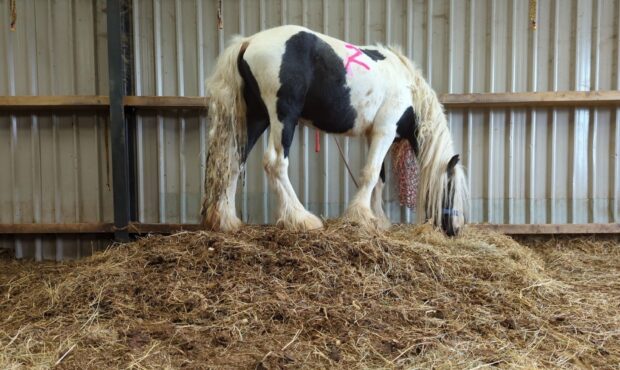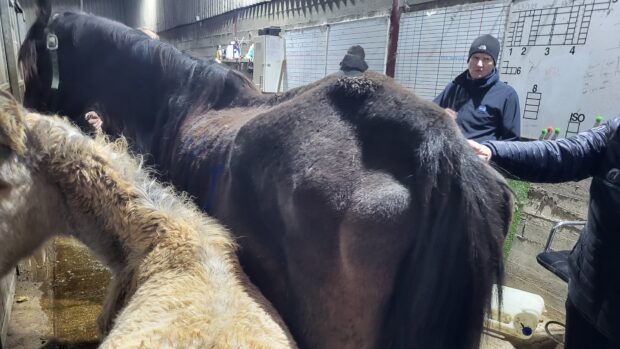Tethering is to be debated in parliament today (20 February) as a welfare charity issues a stark reminder to owners of the risks following cases of “severe” suffering.
The adjournment debate takes place at the House of Commons and the RSPCA said the charity hopes to “safeguard hundreds of horses in the future” after receiving more than 5,000 complaints last year about tethered horses.
RSPCA equine welfare expert Mark Kennedy said: “As the biggest animal welfare charity, we are called almost every day by people up and down the country who are concerned about tethered horses, some of which have suffered horrible injuries after becoming tangled up in their tethers.
“It’s a very difficult situation for us, because at the moment tethering is not illegal in itself, so often our officers are unable to take action unless a vet can confirm the horse is suffering. Sometimes just being tethered, though it poses a lot of risk, isn’t causing suffering at the time we visit, so often our hands are tied.”
Dr Kennedy said the charity has seen many “severe” cases where tethering has caused suffering including Raspy, a pony found in Sutherland last year with a maggot-infested injury caused by two embedded headcollars.
“We have also seen cases where the horse’s legs have become tangled up in the chain or rope and they are unable to move at all. All of these are reasons why we believe tethering poses significant risk to welfare and is therefore an inappropriate way to keep horses,” he said.
“For the welfare needs of a tethered horse to be met, they would have to be very carefully and regularly monitored, safely tethered with properly designed and fitted equipment, given appropriate shelter, feed and water, along with regular and lengthy periods of free-roaming without the tether, but sadly, this rarely happens.
“Tethered horses are not only at risk of becoming injured themselves, they also pose a serious risk to the public, especially when they are left close to busy roads and roundabouts where if they were to become loose, they could cause accidents.”

Stallion’s maggot-infested injury caused by two embedded headcollars
‘The wound appeared a couple of inches deep, it looked like the horse had been sliced’

Ban for owner who tethered emaciated filly in ‘incredibly dangerous’ area
The filly was found in a ‘terrible state’ tethered next to a stallion

Subscribe to Horse & Hound magazine today – and enjoy unlimited website access all year round
Dr Kennedy said the charity is interested in considering approches to address the problem but warned that banning tethering could lead to other problems.
“While the introduction of stricter measures such as a maximum time period on the tether may be a way forward, the impact of this and other potential legislation on the ongoing horse crisis of neglected, abandoned and fly-grazed equines is unknown. If tethering were to be banned outright, this could lead to problems elsewhere, such as increased fly-grazing and abandonment, so we believe that careful thought and consideration is needed to identify the best way forward,” he said.
“Whether or not a change in the law occurs, the key issue is enforcement of existing animal welfare legislation, so we believe that appropriate resources must be made available to the main enforcement bodies to ensure they can properly enforce existing legislation.
“In the meantime, we hope to continue educating and working with horse owners to discourage tethering and promote more suitable, welfare-friendly ways of keeping horses.”
For all the latest news analysis, competition reports, interviews, features and much more, don’t miss Horse & Hound magazine, on sale every Thursday.




